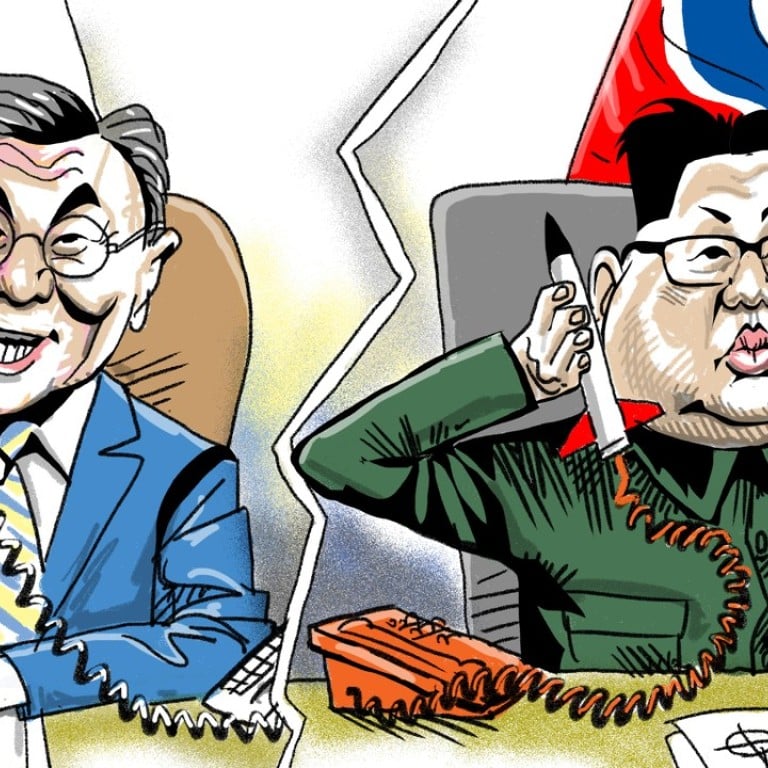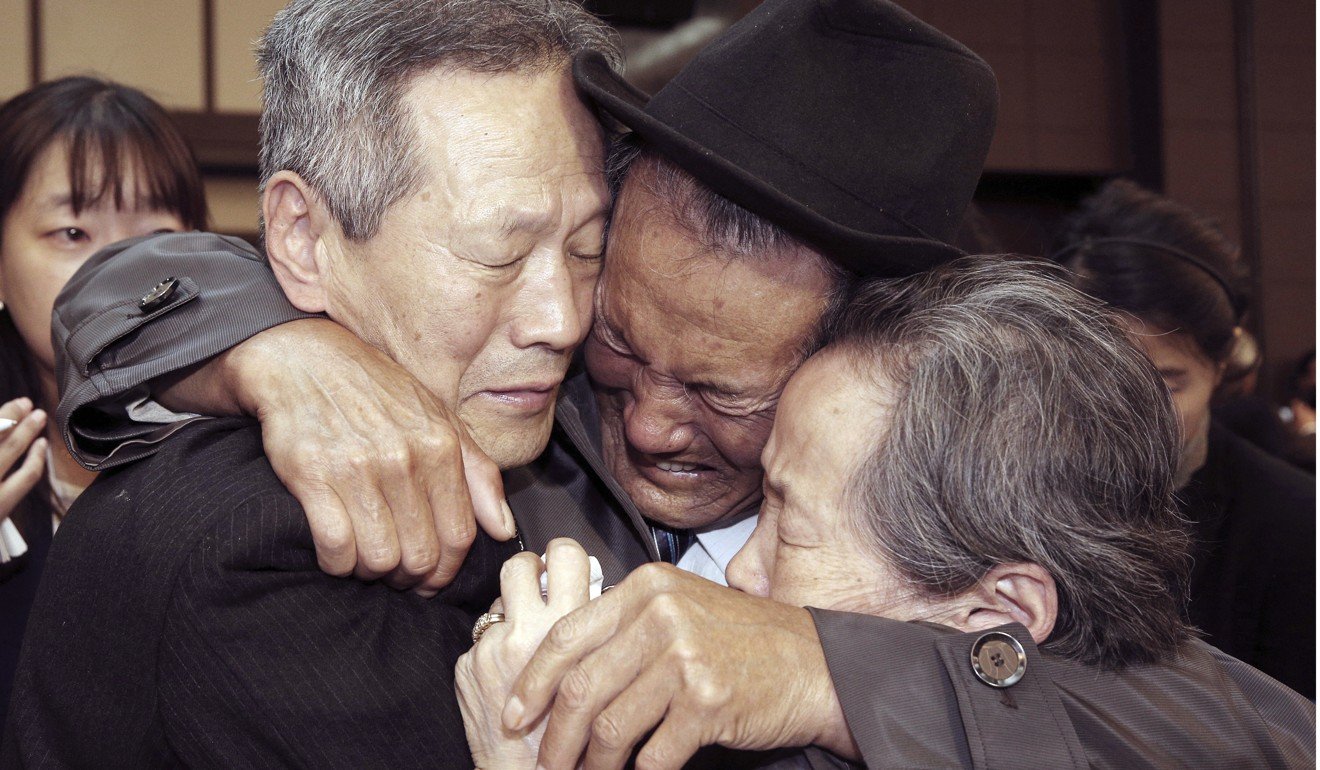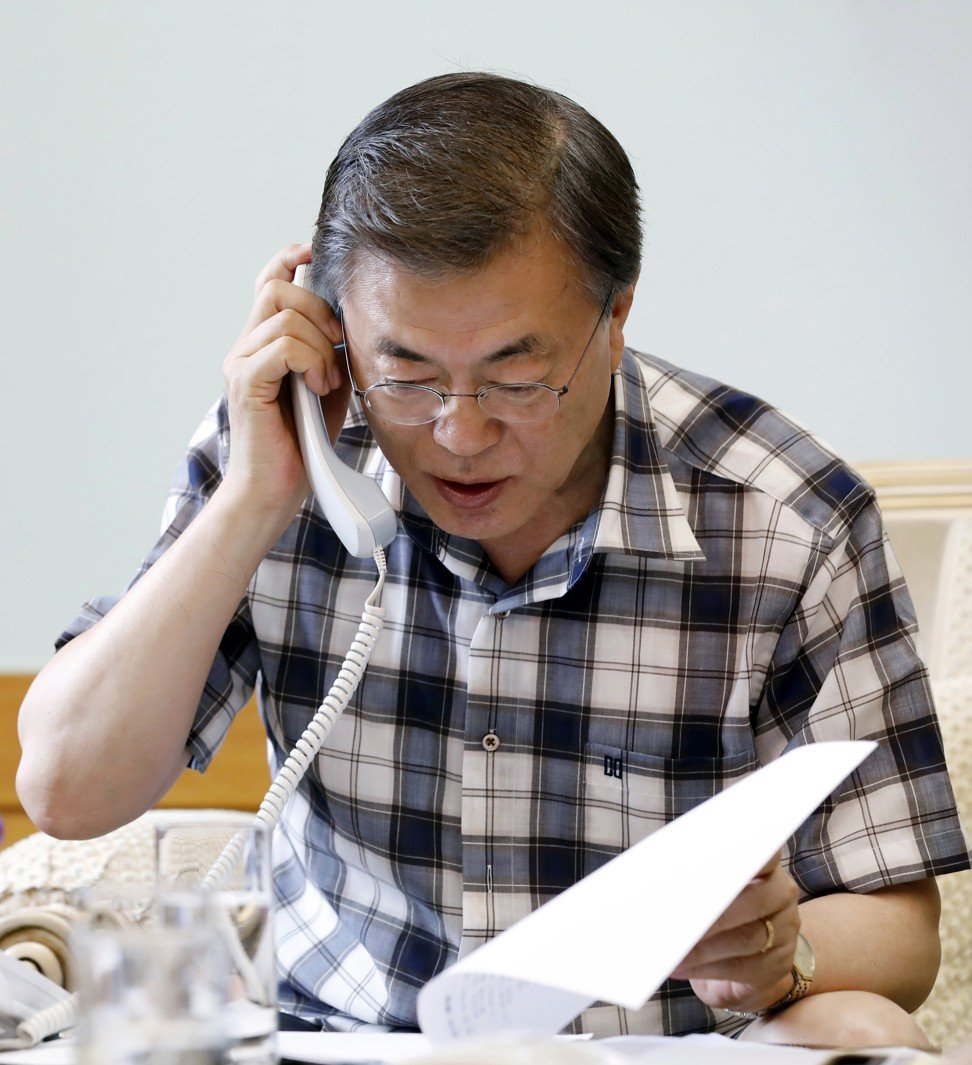
Can South Korea’s Moon Jae-in find a path to reconciliation with North Korea?
Donald Kirk considers the dilemma confronting the South Korean president, as he seeks an independent course that balances a need for US defence protection with his wish for dialogue – and reconciliation – with the North
Watch: North Korea threatens Guam after Trump warns of ‘fire and fury’
If America and its allies believe Kim Jong-un will give up his nuclear arsenal, they are deluded
Incredibly, Moon would still like nothing better than to renew the “sunshine policy” of reconciliation with North Korea, as pursued in a decade of liberal rule during the presidencies of Kim Dae-jung and Roh Moo-hyun, from 1998 to 2008.
So far, Moon has received no response to this overture. Nor, for that matter, have he or his ministers got anywhere in suggestions for more rounds of visits by members of rapidly ageing families separated by the Korean war or for exchanges on a number of levels, as were happening regularly in the “sunshine” era.

Who’s laughing now? After nuclear warhead report, US finally realises Kim Jong-un is no joke
Considering the US-South Korean alliance and the speed with which the US under president Harry Truman came to the rescue of South Korea after the North Korean invasion in June 1950, Moon’s show of cooperation with the Americans should not really be a surprise.
What is surprising to an assortment of liberals, leftists and progressives, though, is that he did not appear likely to follow such a course while pledging an independent policy before his election.
Thus it comes as a shock to disillusioned adherents that Moon has no desire to order the removal of the controversial counter-missile battery known as THAAD, for Terminal High Altitude Area Defence, implanted by the Americans on a golf course about 200km south of Seoul. Having opposed THAAD before his election, now he’s saying more such batteries might be a good idea.
If Moon appears somewhat ambivalent, he is still showing his desire for independence from the fetters of the American relationship – albeit not in a way that will be pleasing to North Korea. Most recently, he has asked for South Korea to be free of the agreement with the United States that limits the range of South Korean missiles, to strengthen its missile programme. Why not be able to develop missiles suitable for firing at much greater distances – as does North Korea?
What next for US and South Korea, as China stands by nuclear-armed Kim Jong-un?
That’s not a notion that China is going to like, considering the Chinese already see THAAD as a threat to their defences and continue to punish the South by banning tour groups from going there. Moon would like nothing better than to maintain warm relations with China, in view of the lip service that China pays to sanctions and the hope that somehow China will persuade Kim Jong-un to tone down his rhetoric and negotiate a deal for freezing his programme. Nonetheless, like Trump, he cannot be at all certain that China will act effectively to stymie Kim’s ambitions.
Some of Moon’s advisers, moreover, are showing a desire for still more independence from American constraints by suggesting South Korea begin developing its own nuclear warheads – a prospect that would surely lead to a nuclear arms race in Northeast Asia. A South Korea membership in the global nuclear club would elevate the confrontation to a new level.
The flame of reconciliation still burns in his vision of the future for both Koreas – not to be trumped by the fire and fury of his American ally.
Donald Kirk is the author of three books and numerous articles on Korea


